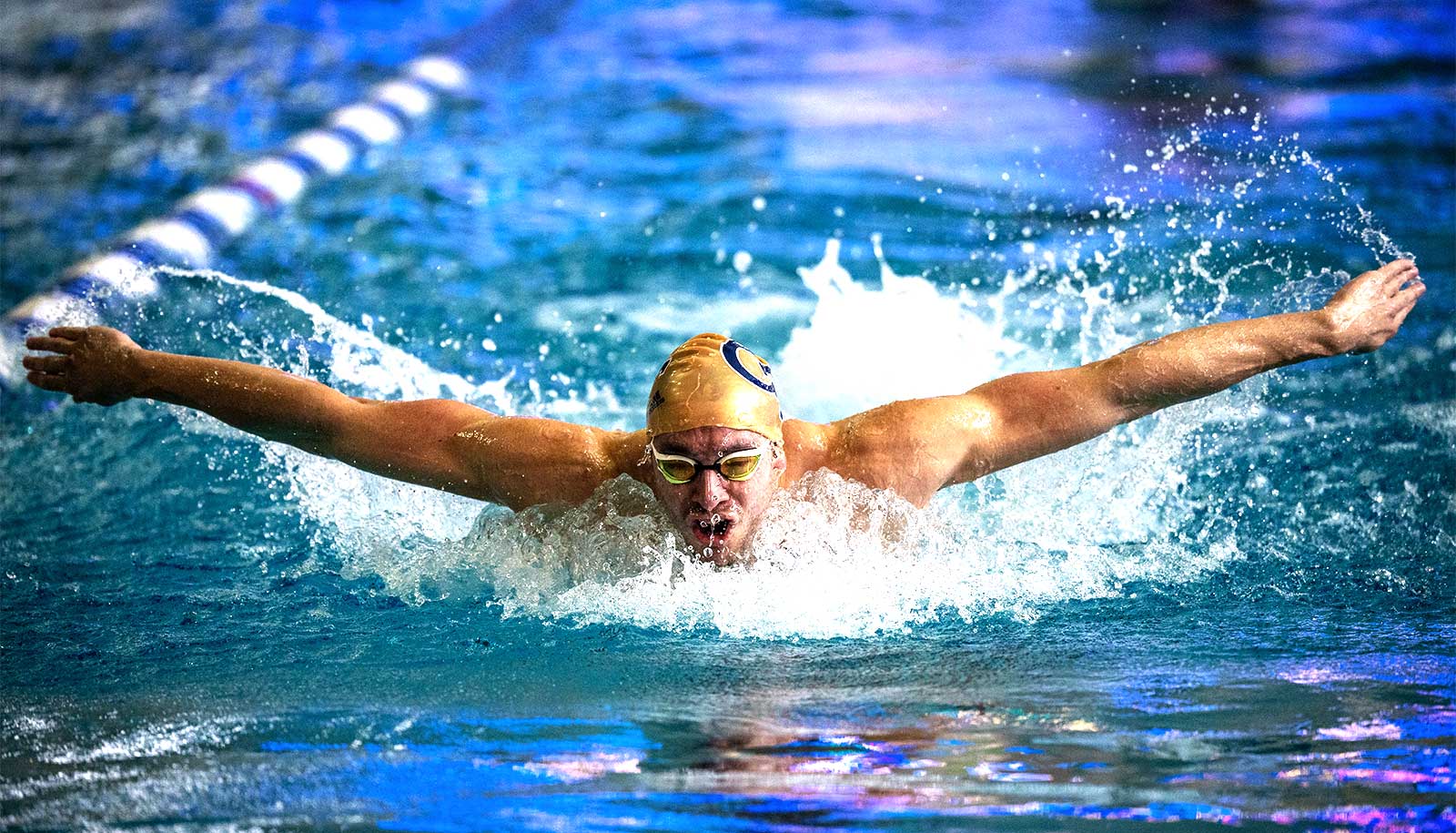Drastically cutting back on caloric intake to lose weight ahead of competition doesn’t just diminish performances, it can also compromise athletes’ immune systems, according to a new study.
Whether selected to swim, row, or run in the Olympics, or gearing up to ride in the Tour de France, achieving the “right” weight has been a focal point of many elite athletes for decades. It could be to look lean and mean in a swimsuit or jersey, or to qualify for a certain weight category. But there is also a belief that losing weight enhances performance.
As such, it is a widespread phenomenon among athletes—especially in endurance sports like running, swimming, cycling, and rowing—to reduce their dietary intake in the run-up to competition.
“It is particularly problematic among female endurance athletes. Many athletes focus heavily on weight in their respective sports. Consequently, they tend to go into short-term, but intense periods of weight loss with the expectation of performing better,” says Ylva Hellsten, professor in the University of Copenhagen’s nutrition, exercise, and sports department.
She and PhD student Jan Sommer Jeppesen are two of the researchers behind a new study on the effects of low energy availability among female athletes.
“We know that the phenomenon of not eating enough is associated with many things that are harmful to health—including missed periods, compromised bone health, and changes in metabolism. But there is still plenty that we don’t know. As such, we investigated some of the possible consequences more closely,” says Jeppesen, who is the study’s lead author.
Poorer performance
For the study, the researchers recruited twelve female triathletes, all of who had a normal energy intake. During one part of the trial, the athletes were given enough calories for 14 days, after which their performance was tested. The same athletes also went through a 14-day period during which they consumed only about 50% of their energy needs while sticking to their normal intensive training schedule.
During the period with insufficient calories, athletes lost an average of roughly 4% of their body weight, about half of which was muscle mass. And this affected their performance.
“The fourteen days of too little food reduced their performance by 7.7% in a 20-minute time trial on a bike, which is quite significant. And during a more intense short-term test, their performance slid by as much as 18%. So there is no doubt that this practice greatly impairs one’s performance as an athlete, even over shorter periods of time,” says Jeppesen.
After fourteen days of low energy availability (LEA), the athletes underwent a three-day “refeeding” period as part of the trial, during which they were provided plenty to eat.
“We had expected that the three days of enough food would restore their performance—and maybe even improve it—but there was absolutely no effect. Their performance was just as degraded as prior to the three days. This tells us that the negative effects cannot be reversed by quickly replenishing energy stores, which is a strategy used by many athletes,” says Jeppesen.
Weaker immune system
In addition to sports performance, the researchers examined the effects on athletes’ immune function.
“Among other things, we saw that insufficient energy intake was associated with increased systemic stress. The athletes had a large increase in cortisol, a stress hormone, and a dramatically increased stress level in immune cells. This suggests that there is a quite severe impact on several aspects of the immune system if one doesn’t eat enough. This may contribute to athletes being more exposed to illness,” says Jeppesen.
The researchers hope that the results of the study will help create more awareness of the phenomenon:
“Many coaches continue to pressure athletes to lose weight. For many years, it has been a part of the culture in the sports world—and remains so. We need to shed light on the phenomenon and ask critically: What are we actually doing to our athletes both physically and psychologically?” says Hellsten.
Team Denmark to use the results
Team Denmark, the Danish elite sport organization, welcomes the new research results with open arms.
“It focuses on a really important topic and challenges the attitude that lighter is always better. The theory and culture remains prevalent in many sports. I experience many athletes who trim their weight in the weeks leading up to a competition, but without understanding the consequences of doing so,” says Majke Jørgensen, a sports nutritionist and manager at Team Denmark.
She sees the results as useful knowledge that can support a message that Team Denmark has been trying to promote:
“My experience is that elite athletes and coaches are curious, but need research that backs up any critiques of the phenomenon. Here, the fact that the test subjects are actual athletes is a major strength, so that the results can be transferred to the athletes and coaches that Team Denmark supports.
“We will use these results to support what we are already trying to communicate, both when we sit down with athletes one-on-one, as well as during workshops and presentations in these types of contexts,” says Jørgensen.
The research appears in the journal Redox Biology.
Additional researchers from the University of Copenhagen and Linnaeus University in Sweden contributed to the work.
Support for the study came from the Ministry of Culture, the Frimodt-Heinike Foundation, the Novo Nordisk Foundation and Team Denmark.
Source: University of Copenhagen



